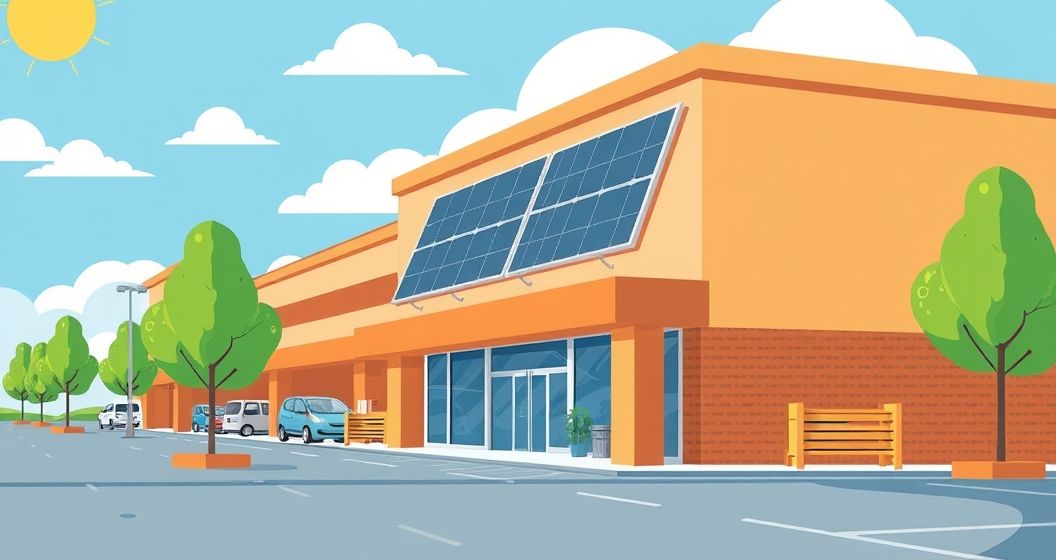Solar Panels Big Box Stores – The United States is striving to reduce its carbon footprint and transition to renewable energy sources. A significant opportunity lies largely untapped: the vast rooftops and parking lots of big-box retailers. Imagine the potential of harnessing solar power from the expansive spaces of Walmart, Target, Costco, and other retail giants. This could represent a massive step towards energy independence and a significant reduction in greenhouse gas emissions.
Solar Panels Big Box Stores: Untapped Potential: The Scale of Solar on Big Box Stores
The sheer scale of these retail spaces is staggering. The combined rooftop area of major big-box stores across the country represents a considerable surface area ripe for solar panel installation. This untapped potential could generate gigawatts of clean energy, significantly impacting the national energy grid. The financial savings from reduced electricity bills alone would be substantial, potentially amounting to millions of dollars annually for each retailer.
Environmental Benefits: A Significant Reduction in Emissions
Beyond the financial benefits, the environmental impact of widespread solar adoption by big-box stores would be profound. The reduction in greenhouse gas emissions resulting from shifting to solar energy would contribute significantly to national climate goals. This move aligns perfectly with corporate social responsibility initiatives and could improve public perception of these large corporations.
Why Aren’t More Big Box Stores Adopting Solar?
Despite the clear advantages, several factors hinder the widespread adoption of solar panels on big-box stores. These include:
High Upfront Costs: A Significant Barrier
The initial investment required for large-scale solar installations can be substantial. While the long-term savings are significant, the upfront capital expenditure can be a deterrent for some companies, especially those prioritizing short-term profits.
Permitting and Regulatory Hurdles: Navigating Complex Processes
Obtaining the necessary permits and navigating complex regulatory processes can be time-consuming and costly. This bureaucratic burden often discourages companies from pursuing solar energy projects.
Lack of Awareness and Expertise: Understanding the Benefits and Implementation
Some retailers may lack awareness of the financial and environmental benefits of solar energy, or they may lack the internal expertise to manage such large-scale projects effectively. This knowledge gap needs to be addressed through education and support.
Overcoming the Barriers: Paving the Way for Widespread Adoption
To unlock the full potential of solar energy on big-box stores, several strategies are necessary. Government incentives, such as tax credits and subsidies, can significantly reduce the upfront costs. Streamlining permitting processes and providing technical assistance can also facilitate wider adoption. Furthermore, increased public awareness campaigns can highlight the benefits of solar energy, encouraging both retailers and consumers to embrace this sustainable solution.
In conclusion, the potential for solar energy on big-box stores is immense. By addressing the existing barriers through policy changes, financial incentives, and increased awareness, the US can significantly advance its renewable energy goals while creating substantial economic benefits for businesses and the nation as a whole. The time for action is now.


